Goldwater scholars announced
The Barry Goldwater Scholarship & Excellence in Education Foundation has announced its 2022 class of scholars. The award, given to second- and third-year undergraduates, supports more than 400 students majoring in science, engineering and math.
Nine ASBMB Student Chapter members are among this year's honorees:

Ryan Osselborn, a junior at Lake Forest College in the Chicago suburbs, plans to pursue a Ph.D. in biomedical sciences after college and hopes to find new diagnostic biomarkers for neurodegenerative diseases such as Parkinson's.
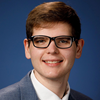
Kade Townsend, a junior currently studying the evolution of antibiotic resistance in Pseudomonas aeruginosa at the University of Kansas, is interested in bacterial genetics research, especially in human pathogens, and plans to earn a Ph.D. in microbiology after college.
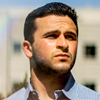
Ari Zlota, a biochemistry major at Northeastern University in Boston, is interested in medicine and plans to apply for M.D./Ph.D. programs in immunology. He wants to study the role of the immune system in wound healing to develop regenerative medicines.
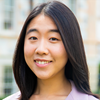
Yena Woo, a junior at Emory University, studies the role of a fibrinolytic cascade in the recovery of an ischemic brain and wants to run a lab developing new therapies for neurodegenerative diseases after earning an M.D./Ph.D.
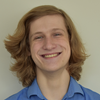
Giona Kleinberg, a junior at Northeastern University with a biochemistry–bioengineering major, is interested in translational research in developmental neurobiology and hopes to earn an M.D./Ph.D. and run his own lab.
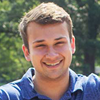
Taylor McGee is a junior at Hampden–Sydney College in Virginia. He is interested in viral research (in particular HIV), computational biology and bioinformatics. He intends to develop antiviral drugs and teach after earning his Ph.D.
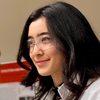
Gretchen Fujimura is a student at Oregon State University. She has used biophysical approaches to study rabies. She intends to earn an M.D./Ph.D. in immunology, focusing on virology and biochemistry, and to conduct clinical trials on vaccines.
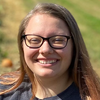
Raegen Esenwein is a student at Duquesne University, where she has studied the role of a topoisomerase in viral infections for several years. She is also pursuing minors in mathematics, biochemistry and women's and gender studies. She plans to earn a Ph.D. in molecular biology and biochemistry.
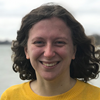
Sarah Fahlberg is a junior at the University of Wisconsin–Madison, who plans to pursue a Ph.D. in computational biology and develop computational tools that can be used to model protein structure and functions, eventually leading a lab.
Enjoy reading ASBMB Today?
Become a member to receive the print edition four times a year and the digital edition monthly.
Learn moreGet the latest from ASBMB Today
Enter your email address, and we’ll send you a weekly email with recent articles, interviews and more.
Latest in People
People highlights or most popular articles

Embrace your neurodivergence and flourish in college
This guide offers practical advice on setting yourself up for success — learn how to leverage campus resources, work with professors and embrace your strengths.

Survival tools for a neurodivergent brain in academia
Working in academia is hard, and being neurodivergent makes it harder. Here are a few tools that may help, from a Ph.D. student with ADHD.

Quieting the static: Building inclusive STEM classrooms
Christin Monroe, an assistant professor of chemistry at Landmark College, offers practical tips to help educators make their classrooms more accessible to neurodivergent scientists.

Hidden strengths of an autistic scientist
Navigating the world of scientific research as an autistic scientist comes with unique challenges —microaggressions, communication hurdles and the constant pressure to conform to social norms, postbaccalaureate student Taylor Stolberg writes.

Richard Silverman to speak at ASBMB 2025
Richard Silverman and Melissa Moore are the featured speakers at the ASBMB annual meeting to be held April 12-15 in Chicago.

Women’s History Month: Educating and inspiring generations
Through early classroom experiences, undergraduate education and advanced research training, women leaders are shaping a more inclusive and supportive scientific community.
